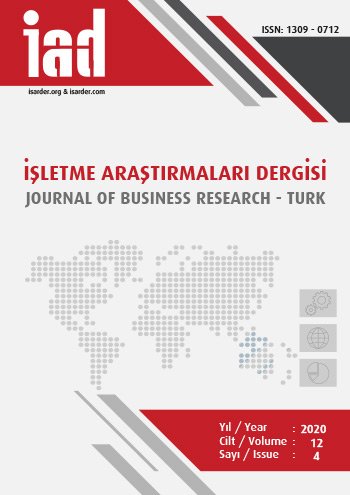(Investigation of the Relationship between Religiosity, Attitude and Behavioral Intentions: Investigation of the Perceptions of Muslim Consumers in Germany Towards Halal Food Labeled Products With VAB Model)
Keywords:
Halal food, Religiosity, AttitudeAbstract
Purpose – The purpose of this study is to reveal the structural relationship between religiosity, attitude and behavioral intention to purchase halal food labeled products. Design/methodology/approach – The sample of the study consists of Muslim consumers living in Germany. Questionnaire technique was used to reveal the structural relationship. A total of 408 valid questionnaires conducted online were analyzed using Smart PLS Professional 3.0 software. The bootstrapping technique was used for testing the hypotheses aimed to be measured in the study. The structure, consistency and discrimination validities of the variables were calculated. Finally, the accuracy of the hypotheses was tested with path analysis. Findings – According to the results of the analysis, it was determined that religiosity positively affected attitudes and behavioral intentions towards purchasing halal food labeled products. In addition, as a result of the analysis, it was determined that attitudes towards purchasing halal food labeled products positively affect behavioral intentions similarly. Discussion – Study results have shown that religiosity has a significant and positive direct effect on the attitude towards purchasing halal food. This empirical evidence shows that the level of consumer piety is an important determinant in the consumer's attitude towards purchasing Halal food labeled products. In other words, the higher the level of religiosity, the more positive the attitude towards purchasing halal food labeled products will be. This study also revealed that the attitude has a significant and positive direct effect on behavioral intention to purchase halal food labeled products. Based on the results obtained in the study, it reveals the importance of businesses in Germany to have a halal label. Especially for businesses with Muslim consumers in their target market, having a halal certificate can be a useful strategy to increase their sales.
Downloads
Published
How to Cite
Issue
Section
License

This work is licensed under a Creative Commons Attribution-NoDerivatives 4.0 International License.





